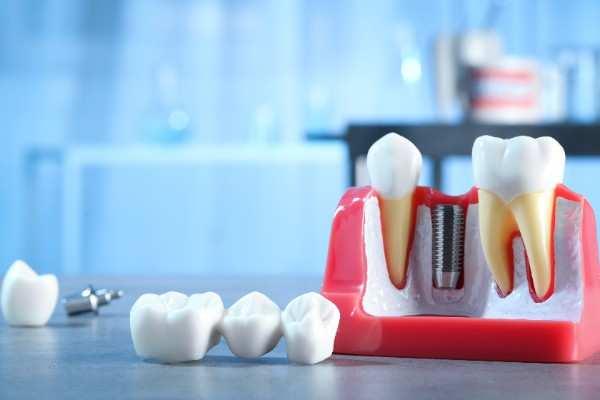A good night’s sleep should leave you refreshed, but for many, it comes with an unwelcome habit: grinding teeth. Bruxism, commonly known as teeth grinding, affects millions of people and often goes unnoticed until symptoms become severe. It may occur during sleep or while awake, leading to jaw discomfort, headaches, and tooth wear. While it might seem like a minor nuisance, untreated bruxism can cause long-term damage to your teeth and jaw. Understanding what causes it and learning how to prevent it can help you protect your smile and improve overall wellbeing.
What Is Bruxism?
Bruxism refers to the involuntary clenching or grinding of teeth, most often occurring during sleep. There are two types:
- Awake bruxism – occurs during periods of concentration, stress, or tension.
- Sleep bruxism – happens unconsciously during sleep and is often harder to detect.
Dentists often identify the condition by looking for tell-tale signs such as flattened or chipped teeth, sensitive enamel, and jaw tenderness. Left untreated, chronic bruxism can lead to misalignment, tooth fractures, and temporomandibular joint (TMJ) disorders.
Common Causes of Teeth Grinding
Bruxism typically results from a combination of psychological, physical, and lifestyle factors. Understanding these triggers is the first step towards effective management.
| Cause | Description |
| Stress and Anxiety | Emotional tension often leads to unconscious clenching of the jaw. |
| Sleep Disorders | Conditions like sleep apnoea can increase grinding episodes. |
| Bite Misalignment | Crooked or missing teeth may affect how the jaw closes, promoting grinding. |
| Lifestyle Habits | High caffeine intake, alcohol, and smoking can aggravate bruxism. |
| Medications and Genetics | Certain antidepressants and inherited traits can make some people more prone to it. |
When persistent discomfort or wear becomes noticeable, consulting a dental specialist who deals with tooth grinding Liverpool cases ensures early diagnosis and management before further damage develops.

Symptoms and Warning Signs of Bruxism
Many people aren’t aware they grind their teeth until the damage becomes evident. Recognising the symptoms early can make a significant difference in preventing long-term harm.
Common signs include:
- Jaw pain or stiffness, particularly after waking up
- Dull headaches or earaches
- Tooth sensitivity or noticeable flattening
- Cracked or chipped teeth
- Clicking or locking jaw movements
- Interrupted sleep or tiredness in the morning
If you experience one or more of these symptoms, a dental examination can help confirm the diagnosis and determine the extent of the wear or stress on your teeth.
Effects of Untreated Bruxism
If left unchecked, bruxism can severely affect oral and overall health. The repeated pressure from grinding can wear down enamel, irritate gums, and strain the jaw joint. Over time, this can lead to:
| Effect | Potential Consequence |
| Tooth Damage | Chipped, cracked, or flattened teeth |
| Gum Recession | Increased sensitivity and infection risk |
| Jaw Disorders (TMJ) | Pain and restricted movement |
| Chronic Facial Pain | Muscle tension and headaches |
| Sleep Disruption | Fatigue and irritability |
For those in need of targeted care, dental experts specialising in Dental Implant Liverpool and oral rehabilitation can help restore damaged teeth and prevent further deterioration.
How to Prevent Teeth Grinding
Fortunately, there are several practical and professional strategies to prevent bruxism or reduce its effects.
A. At-Home Prevention Tips
Implementing a few daily changes can significantly ease tension and minimise grinding episodes:
- Manage Stress: Engage in relaxation techniques such as meditation, yoga, or deep-breathing exercises.
- Establish a Calming Bedtime Routine: Try reading, stretching, or listening to soft music before bed to promote restful sleep.
- Avoid Stimulants: Limit caffeine, nicotine, and alcohol, especially in the evening.
- Watch Your Chewing Habits: Avoid biting nails, pens, or hard foods that keep the jaw tense.
- Apply Heat or Cold Packs: Alternating temperatures can relax jaw muscles and relieve soreness.
B. Professional Treatments for Bruxism
If self-care measures aren’t enough, professional dental treatments offer effective solutions:
- Custom Night Guards or Mouthguards: Worn during sleep to protect teeth from further wear and absorb grinding pressure.
- Orthodontic Treatment: Aligning the teeth can correct bite issues that contribute to grinding.
- Physical Therapy: Gentle jaw exercises can improve movement and reduce tension.
- Behavioural Therapy: Cognitive behavioural techniques help address stress and habits related to bruxism.
- Muscle Relaxant Injections: In more severe cases, targeted injections can reduce involuntary muscle activity.
A combination of these methods, tailored by a dental professional experienced in Tooth Grinding Liverpool, can significantly reduce discomfort and prevent further damage.
Lifestyle and Emotional Health Connection
Emotional wellbeing plays a crucial role in managing bruxism. High stress levels and anxiety are two of the leading causes of teeth grinding. When the body remains in a constant state of tension, the jaw muscles subconsciously clench, especially during sleep.
To minimise this:
- Prioritise mental health care, consider counselling or mindfulness training.
- Engage in regular exercise, which naturally reduces stress hormones.
- Maintain balanced nutrition with magnesium-rich foods that support muscle relaxation.
- Practise consistent sleep hygiene, keeping a steady bedtime schedule.
Taking care of emotional health not only improves your mental state but also contributes directly to reducing physical symptoms like jaw pain and grinding.
When to See a Dentist
Knowing when to seek professional help is vital for effective management. You should consult your dentist if you experience:
- Persistent jaw pain or limited jaw movement
- Frequent headaches or ear discomfort
- Cracked, flattened, or sensitive teeth
- Noticeable grinding noises reported by your sleep partner
- Trouble sleeping due to discomfort
Early intervention can prevent irreversible damage and ensure that appropriate treatments are started before more complex dental issues arise. In some cases, restoring worn or damaged teeth may require collaboration with specialists offering dental implant Liverpool services for long-term oral rehabilitation.

Conclusion
Bruxism can cause significant discomfort and long-term dental issues if ignored, but with early detection and a tailored approach, it can be effectively managed. Recognising symptoms, addressing stress, and seeking timely professional care are key to achieving lasting relief. Through proper lifestyle habits, protective dental devices, and emotional wellbeing, you can prevent further damage and restore your smile’s natural comfort and function.
For expert care and personalised treatment in Liverpool, trust Smilo Dental Implant Liverpool to provide comprehensive, patient-focused solutions that ensure your teeth and jaw stay healthy, strong, and pain-free for years to come.



